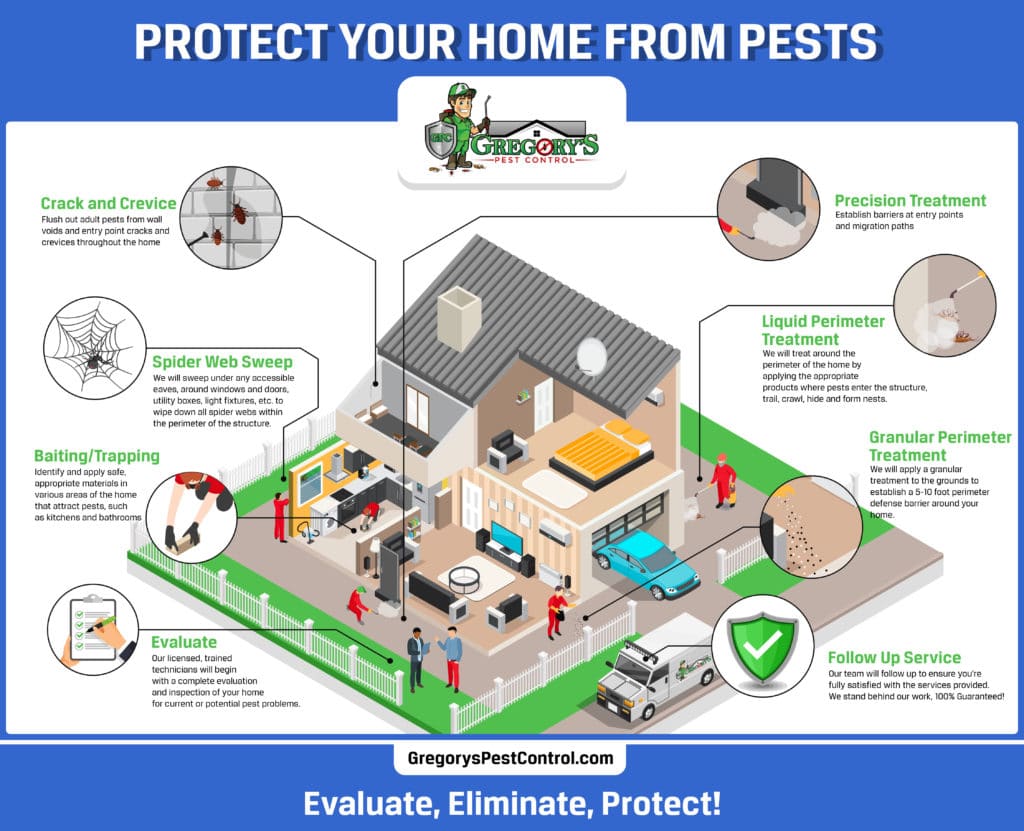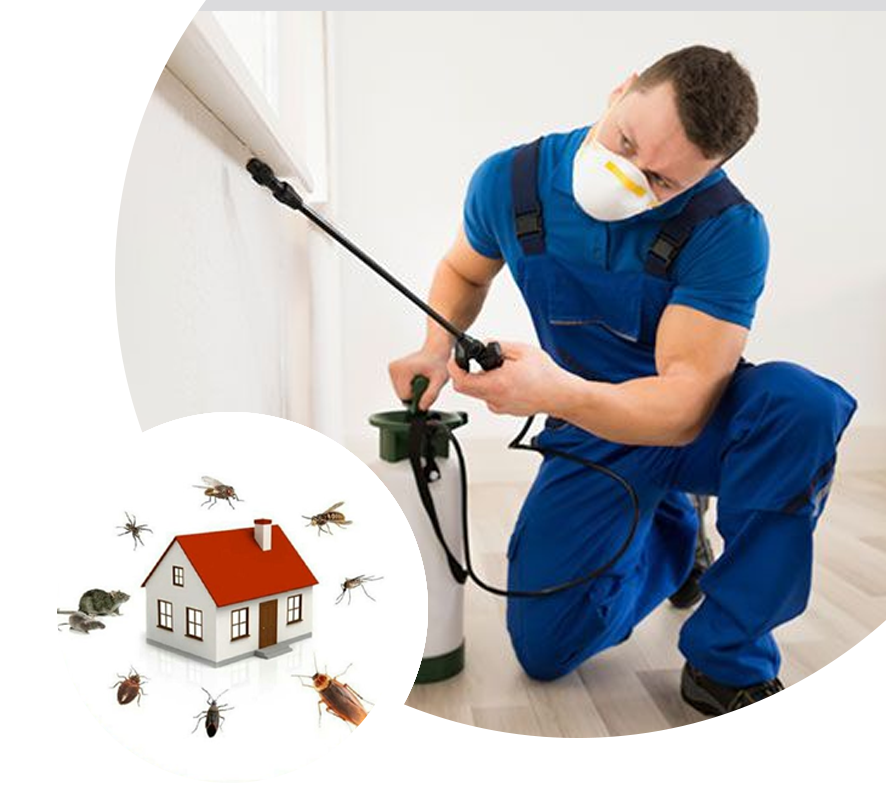Eradicating Pests: Top Pest Control Visalia's Professionals
Eradicating Pests: Top Pest Control Visalia's Professionals
Blog Article
Kinds Of Bug Control: Which Approach Is Right for Your Infestation?
When confronted with a parasite infestation, the option of an ideal approach for parasite control is critical in effectively managing the situation. From chemical therapies to organic services, there exists an array of methods that can be used to address various kinds of bugs. Each approach features its very own set of advantages and factors to consider, making the decision-making procedure a nuanced one. Recognizing the subtleties of each technique and assessing their compatibility with the specific parasite invasion at hand is necessary for accomplishing long-term success in parasite administration. By exploring the numerous kinds of parasite control techniques available, people can make educated decisions customized to their one-of-a-kind scenarios, making sure an extra reliable and lasting outcome in pest elimination.

Chemical Bug Control
Chemical bug control includes making use of artificial or normally derived chemicals to manage and get rid of pest populaces effectively. This approach is commonly utilized in farming, forestry, and household setups to deal with a wide variety of bugs, consisting of rodents, insects, and weeds. Making use of chemical pesticides can supply fast and targeted solutions to pest infestations, making it a popular choice for several people and services.
One of the key advantages of chemical parasite control is its ability to quickly eliminate parasites, lowering the danger of damage to plants, residential or commercial property, and human wellness - pest control visalia. By utilizing particular chemicals that target certain bugs, this method can effectively manage infestations while decreasing damage to valuable microorganisms and the atmosphere when applied appropriately
Nevertheless, the use of chemical bug control also elevates issues regarding potential adverse effects on non-target species, water resources, and human health. It is important to follow security guidelines, apply chemicals sensibly, and consider different pest control techniques to minimize these dangers and ensure lasting insect administration techniques.
Biological Pest Control
Organic insect control, additionally called biocontrol, utilizes living microorganisms to reduce and manage pest populaces normally. This method uses the power of nature to control bugs without the need for artificial chemicals. Biocontrol can involve the introduction of all-natural adversaries of the insect species, such as pathogens, parasites, or predators, to suppress pest populations. By making use of the bug's all-natural killers or virus, biological insect control uses a sustainable and environmentally pleasant solution to pest management.
One usual instance of biological parasite control is using ladybugs to regulate aphid populations in gardens. Ladybugs are all-natural killers of aphids and can help keep their numbers in check without using hazardous chemicals. The microorganism Bacillus thuringiensis (Bt) is made use of as an organic insecticide to regulate caterpillar pests while being secure for other microorganisms.
Mechanical Pest Control
Utilizing hands-on and physical methods to take care of insect populaces, mechanical parasite control provides an alternate method that does not rely upon making use of living microorganisms or artificial chemicals. This method includes making use of obstacles, catches, or other tools to physically deter or get rid of pests. By obstructing pest entrance factors or establishing catches to catch them, mechanical insect control can effectively minimize problems without introducing chemicals into the atmosphere.
One usual instance of mechanical bug control is using mesh screens on doors and windows to stop pests from going into structures. pest control visalia. This straightforward yet effective technique works as a physical barrier, keeping parasites out while allowing for appropriate air flow. In addition, devices like mousetraps, fly swatters, and ultrasonic repellents fall under the mechanical bug control group

Physical Bug Control
An efficient approach to managing parasite populations without relying upon chemical or biological approaches entails using physical insect control strategies. Physical parasite control techniques aim to remove or discourage pests via mechanical ways instead of pesticides or chemicals. These techniques are usually liked for their ecologically friendly nature and very little influence on non-target microorganisms.
Some typical physical pest control techniques include making use of obstacles such as displays or nets to avoid pest entrance, catches to catch and get rid of parasites, and hand-picking to physically get rid of insects from plants or frameworks. Additionally, strategies like heat therapies can be used to manage parasites like bed insects by elevating the temperature to degrees that are dangerous to the insects.
Physical bug control is specifically helpful in incorporated parasite administration (IPM) strategies, where multiple bug control methods are integrated for reliable pest administration while decreasing making use of you can find out more chemicals. By using physical bug control strategies, individuals can successfully resolve pest invasions with very little ecological influence.
Integrated Pest Administration
When carrying out physical parasite control approaches as component of bug administration approaches, Integrated Insect Administration (IPM) arises as a comprehensive method that leverages different methods to successfully regulate pest populaces. IPM concentrates on lasting avoidance of parasites via a mix of organic, social, physical, and chemical devices customized to certain bug concerns. By incorporating several control techniques, IPM intends to lessen the threats related to parasites while likewise reducing reliance on chemical remedies.

Conclusion
Finally, figuring out the most efficient approach of insect control for your problem depends on different factors such as the type of parasite, the extent of the invasion, and ecological considerations. Chemical bug control entails making use of pesticides, organic pest control look at here now uses all-natural killers, mechanical pest control includes physical obstacles, physical parasite control includes trapping or eliminating bugs, and try here incorporated pest administration integrates numerous approaches for a holistic technique to pest control. Pick the approach that best suits your particular circumstance.
By making use of the pest's natural predators or pathogens, biological insect control uses a eco pleasant and lasting solution to pest monitoring.
Utilizing hands-on and physical techniques to take care of pest populations, mechanical insect control provides an alternate technique that does not depend on the use of living organisms or synthetic chemicals.An effective method to handling pest populations without depending on chemical or organic techniques includes the use of physical pest control techniques.When implementing physical pest control approaches as part of pest management strategies, Integrated Parasite Monitoring (IPM) arises as a detailed method that leverages various techniques to properly manage pest populations. Chemical pest control entails the use of pesticides, organic bug control uses natural killers, mechanical insect control involves physical obstacles, physical insect control consists of capturing or removing parasites, and incorporated insect management integrates multiple techniques for a holistic technique to pest control.
Report this page